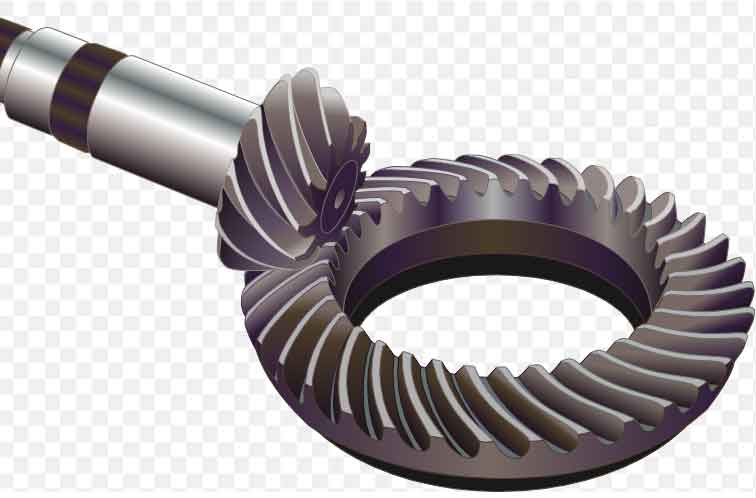
Proper lubrication and maintenance are essential for ensuring the optimal performance and longevity of spiral bevel gear systems. These gears operate under high loads and stresses, and maintaining them in good condition is crucial for smooth and efficient operation. Here are some key considerations for lubrication and maintenance of spiral bevel gear systems:
1. Lubrication:
- Select the Right Lubricant: Choose a high-quality gear oil specifically formulated for spiral bevel gears. The lubricant should have excellent thermal stability, anti-wear properties, and resistance to foaming and oxidation.
- Proper Viscosity: Ensure that the gear oil’s viscosity is suitable for the operating conditions and ambient temperature. The gear manufacturer’s recommendations or industry standards can guide you in selecting the appropriate viscosity grade.
- Oil Level: Regularly check the oil level in the gear housing to ensure it is within the recommended range. Overfilling or underfilling can lead to lubrication issues and gear damage.
- Contamination Control: Keep the gear oil clean and free from contaminants, such as dirt and water. Use efficient filtration systems to maintain the oil’s cleanliness.
- Oil Change: Follow the recommended oil change intervals. Gear oils can degrade over time due to temperature fluctuations and contamination, so regular oil changes are essential for optimal performance.
2. Gear Inspection:
- Visual Inspection: Periodically inspect the gear teeth for signs of wear, pitting, chipping, or other damage. Early detection of potential issues can prevent major failures.
- Gear Alignment: Check the gear alignment regularly to ensure the correct meshing of teeth. Proper alignment minimizes stress on the gears and improves their performance.
- Backlash Measurement: Measure and monitor the gear backlash to ensure it falls within the recommended range. Proper backlash is crucial for smooth operation and prevents excessive wear.
3. Noise and Vibration Monitoring:
- Monitor gear noise and vibration levels during operation. Sudden changes in noise or vibration can indicate issues with gear meshing or lubrication.
- Addressing Unusual Noise: Investigate and address any unusual noises promptly to prevent further damage.
4. Preventive Maintenance:
- Establish a regular maintenance schedule and adhere to it strictly. Preventive maintenance helps identify potential problems early and prevents unexpected breakdowns.
- Keep Detailed Records: Maintain a comprehensive maintenance log that includes lubrication schedules, oil change history, gear inspection results, and any maintenance actions taken.
5. Cleaning and Protection:
- Clean the gears and gear housing regularly to remove dirt and debris. A clean environment reduces the risk of contaminants entering the gear system.
- Provide appropriate protection to the gear housing to prevent water ingress and corrosion.
6. Expert Inspection:
- For critical applications or when dealing with large gears, consider having periodic inspections performed by expert technicians to ensure the gears are in top condition.
Proper lubrication and maintenance are essential for preventing premature wear, reducing downtime, and maximizing the service life of spiral bevel gear systems. Following manufacturer recommendations, industry standards, and best practices ensures that the gear system operates efficiently and reliably throughout its service life.
